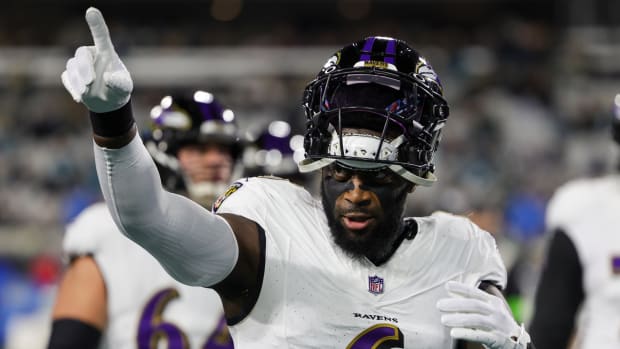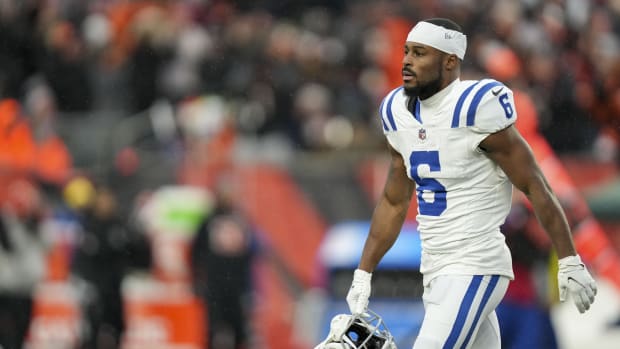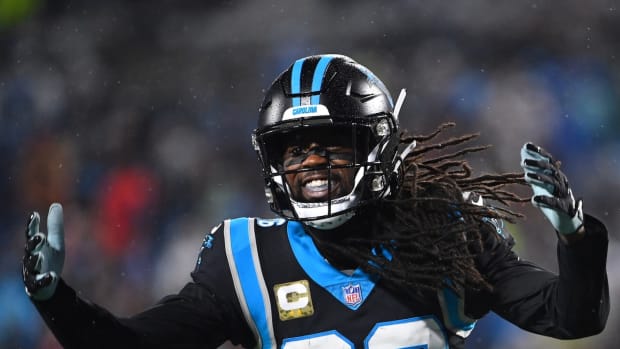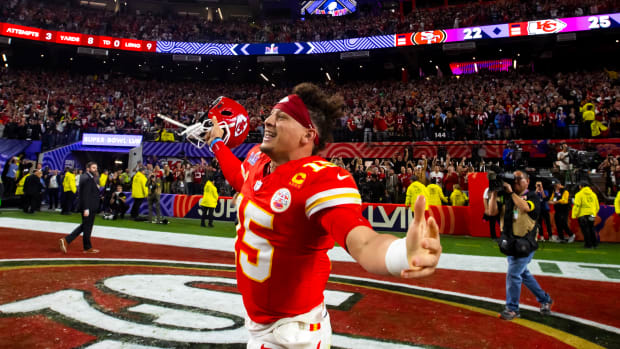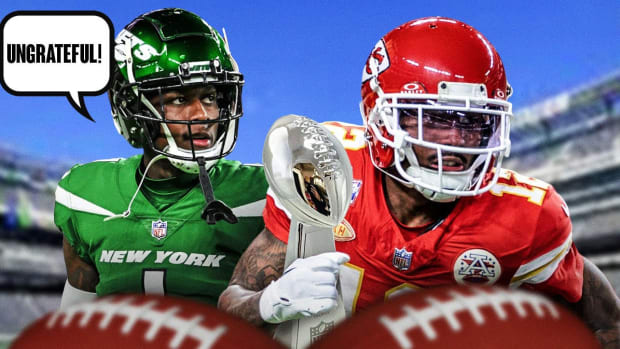In the Event of a Mass Shooting, the NFL’s Defense Wouldn’t Be Enough
Sometimes when I arrive at an NFL game I’m covering, I play my own little game of confidence. In many cases, my press credential has been mailed to me in advance. But other times it’s waiting for me at the media will call gate, that secret little window near the media entrance that no stadium security person ever seems to have any knowledge of. That’s when I run my test.
In 2013 the NFL decided that stadiums would no longer allow bags on stadium premises. Bags larger than the size of a hand or not of a clear plastic variety were not permitted within a secondary perimeter encircling the stadium. The purpose, as explained by the NFL at the time, was to limit the exposure of “soft targets” from harm. (The stadium bleachers themselves would be a hard target, while a large gathering of people outside the stadium gates is considered a soft target). To enforce this, the league beefed up its game-day security—often contracted out to private companies—by placing staff around an extended perimeter of the stadium so that no person can cross the imaginary line protecting the soft targets without falling under the eye of a security official wearing a yellow jacket.
So for the last four years, I come walking up—in Atlanta or Detroit or Denver, and just about every other NFL stadium—with a sport coat and a big leather bag slung around my shoulder. Sometimes it's a stuffed backpack, or even a bulky black Samsonite carry-on, because I just got off a plane and there wasn’t time to check into the hotel. And every time, no matter the city, the league’s security apparatus works . . . initially.
The security person typically says, “You can’t take that inside.” The ones that I’ve talked to are typically in their 20s. They’re earning money for college on the weekends, or they’ve been doing these sort of part-time jobs for years and aren’t too invested in the mission. They come to the stadium the morning of the game and some supervisor they don’t know hands them a yellow jacket and some vague rules about how to handle the most common situations security guards face at NFL games. In my experience they are most often young men of color, but they come in all races, genders and ages.
I say, “Yes I can.” That’s it. I don’t explain that I’m heading to media will call. I don’t say I’m a member of the media. I don’t even stop walking. I’ve been wondering, for four years, when somebody will take the next step. I imagine they’d flag down one of the half-dozen cops that are within shouting distance, then I’ll stop in my tracks and do everything I’m told. I say to myself that when this happens I’ll stop my little tests.
But it never happens. Every time, I keep walking, and they say nothing. This is how people sneak into the Super Bowl every year without a ticket. It’s about portraying a sense of confidence, and correctly judging the gatekeeper. If a person in a security role looks unconfident, inexperienced or uncaring, you stick out your chest and keep walking. You belong; they don’t. It’s that simple.
Vegas Native Bryce Harper: 'Can't Fathom the Horrific Event That has Taken Place'
In this country, and in similarly developed places in the West, we have clung hopelessly to the illusion of security. We consider ourselves invulnerable in football stadiums and concert venues because no fan was allowed to bring a bag inside, and someone waved a wand across our crotches before we walked in. We feel safe on planes because we had to take our shoes off to enter the terminal.
I don’t know if anybody in a security role saw the Las Vegas shooter haul in all that luggage filled with the most efficient personal killing tools known to man, or if anybody sensed something off about the way he carried himself. I know this: The safe is only as strong as the person with the key.
We ask a lot of security guards. We ask them to see through the bullshit, and for the most part, they do. The number of threats sniffed out by men and women in uniform is unknowable, because we only hear about the occasions when the apparatus fails catastrophically; we almost never find out when it succeeds. And it succeeds every day in countless scenarios across the globe. But these are still people, and people fail. Human error is a statistical inevitability.
Most weapons used in mass shootings are purchased legally. A semi-automatic weapon can be turned into a machine gun with a bump stock that is—again, under current law—legal to purchase. This is the only country where this happens, because other developed nations have made laws that keep the most efficient killing weapons out of the hands of would-be mass shooters. Your right to bear arms should only extend as far as my right to go to a concert or football game without fear of random, devastating violence.
We don’t need more layers of guards in yellow jackets, extended to the hotels that overlook event spaces. We don’t need more men and women standing guard with more guns, not with the devastation one person can unleash in a matter of seconds. We don’t need a festoonery of security when we gather in large groups of fellow fans to watch talented people perform. And we don’t need any more thoughts and prayers from lawmakers too craven or too beholden to special interests to take real action.
We, the soft and hard targets, need laws.
• Question or comment? Email us at talkback@themmqb.com.
































